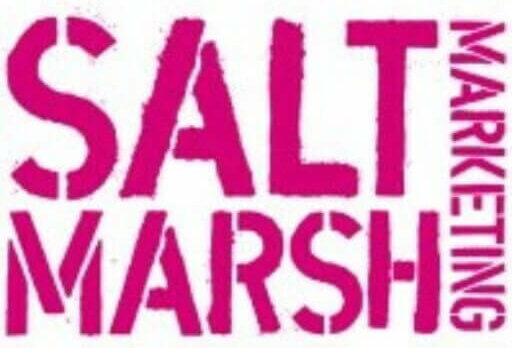Busman’s holiday for me recently. I have been working on my own website.
And I can tell you it is not one of my favourite marketing tasks. I find marketing my OWN business a challenge. As do many legal founders. Which is why they work with me on theirs.
What I have found over the years is that business owners struggle with the concept of their website as a tool that is constantly evolving and developing. Speaking to many lawyers and legal professionals, there’s a perception of, “Build it, and they will come.” As long as something is online, people will find it.
That couldn’t be further from the truth.
Your website is your digital house. The foundations of your digital marketing. And unlike your social media, it’s a house you can own, and not just rent, with the fear in the background of your landlord selling the whole thing to the Elon Musk realtor equivalent.
And that’s why building it in the right way, with stable foundations, is so important.
Get the foundations solid (not just the facade)
Ah, the thrill of the new website project.
As a legal founder, you’re probably already dreaming of sleek headlines and splashy images.
Well hold your horses!
Remember the wise words of my plumber when renovating my bathroom:
“The door knobs can wait, Helen. Let’s make sure the toilet actually works first.”
You see, your website is your digital estate. You wouldn’t go investing in fifty small pots of Farrow and Ball colour samples when you don’t even have a roof yet, would you? (Actually I would do this….) Start with the basics. Get the wiring right; otherwise, that dazzling chandelier in your entrance hall (aka your homepage) won’t light up.
The User Experience: Your House Tour Guide
Imagine a visitor stepping into your digital manor. What’s their path from the foyer (your homepage) to the study where you display your expert articles? No one’s going to explore the entire mansion without a bit of guidance. That’s your user experience—your chance to hold their hand (not literally, data privacy and all that) through their journey.
What you should really be asking:
- What do I want visitors to feel and do on my site?
- How do I make their stay comfortable, informative, and action-driven?
These are key questions that most small law firms often brush aside like last season’s fashion. Mistake. You’re not just selling services; you’re selling a team—a culture.
The starting point of a great website project is always thinking through the user journey. Invest in the structure of your site and what’s going to work best for your website visitors.
Ask yourself:
- What journey do you want to take your users on when they visit your website?
- How are you going to keep them on it?
- If I was coming to the website, what would I be looking for and how can I make it easy for that person to find it?
Cost and Scalability: The Not-So-Fine Print
Quick and cheap might get the job done today, but can it scale tomorrow?
Don’t skimp on the foundations if you’re planning on building an empire. Get it right—high-quality content, intuitive CMS—and your website will age like a fine chateau. We always work on WordPress for our projects.
Keep the Feedback Loop Tight
Whether it’s a web developer or a digital agency, know their strategy like the back of your hand. Ask them the nitty-gritty details—processes, revisions, timelines, and SEO strategy. Here are some useful questions to ask anyone before you start work with them on a website project:
- What’s your process? What system do you work on (e.g. Figma)
- How long will you give us to feed back?
- How many rounds of revisions? Do you limit these in any way?
- What are the key review milestones in the roadmap?
- Who is doing the copywriting? Do I need to work with a specialist copywriter on web copy? Do you have anyone you recommend?
- What is your approach to SEO?
- What are the plug-ins you’ll be using?
- Do you offer ongoing SEO services?
Finding the Right Web Developer: Plumbing the Depths
Spotting a sterling digital agency is eerily similar to finding that rare, no-nonsense plumber—both mythical creatures in their own right.
But fear not, I collared a true professional, Yvette Asker, for my digital renaissance. She’s a legal website wizard and knows the score. It’s really important, if you are a small legal business, that you know who’s hammering away behind the scenes. Me and Yvette have now crafted our website decorating art, bought matching overalls, and even have our own mugs! Booking for 2024…
Feeding Your Digital Home: More than Digital Dusting
Once the scaffolding’s down in your brand new build, I hate to tell you this, but you’ve only just begun.
Now it’s time to pile in the content.
SEO isn’t just three letters—it’s your new digital mantra.
Stuff your site with well-written, relevant, highly optimised copy. Use tools like SEMRush for research to tap into search intent. Know where and how to use keywords in your content for searchability. Understand link building. But also write for potential customers and offer value which goes over and above SEO. Because producing “thin” content is a bit like being invited to someone’s house for a really weak cup of tea.
And Google does NOT like a weak cup of tea.
Me and Yvette usually call upon our SEO legal writer Becky Whittaker for this art. (She’s got her own overalls and mug too.)
The Long Game: A House Needs Decorating, a Website Needs Updating
Think your website is a ‘set and forget’ deal?
Brace yourself for all sorts of tinkering you didn’t plan for!
Because your website launch is simply the start of your digital estate building.
Keeping tabs on Google Analytics is like an estate agent constantly coming to assess the value of your house. Which rooms are getting footfall and which are gathering dust? Where do you need to redecorate again? Is there one room which needs moving around to make it more comfortable?
And don’t forget to use other referral sources and sprinkle some social media magic.
In a Nutshell:
Just like your dream home needs more than a sturdy foundation, a knockout website needs a crystal-clear user journey, riveting content, and a CMS that doesn’t make you want to pull your hair out.
You need to clean it regularly, furnish it with your new things, breathe life into it, invite your friends around, all of the things that make a house a home. Don’t neglect it and make it your own.
If you fancy a natter about your digital plans, shoot me an email at .
You bring the ambition; I’ll bring the expertise.
Website build FAQs
What are some of the common mistakes that small businesses make when executing a website project?
- Not thinking like their clients.
- Sprinting to the finish.
- Fussing over fonts and agonising over every full stop delaying launch by months (sorry lawyers but yes, I am talking to you)
Yvette’s golden nugget? “Your website is not a static monument; it’s a journey.”
How can businesses stay ahead of the curve in terms of their website?
Ensure you’re carrying out regular security updates. Even better, work with a professional who will host your website and handle the plugin updates and security issues as part of a maintenance package. Think of it as your digital MOT.
Keep up to date with industry trends and write blogs to answer questions your target audience are asking you. This approach not only helps your website rank better, but gives you credibility.
Can I just build my own website?
Tempting. But a shaky idea. You wouldn’t defend yourself in court just because you aced ‘Law & Order’ trivia, would you?
Bargain-basement web builds often end in sorrow.
Yvette reiterates, “Don’t be tempted to DIY your website. I see this as a false economy. For your website to be successful at attracting new clients, there’s a lot that goes on behind the scenes.”
Beware of cheap website build quotes. You might find yourself with substandard shared hosting, an extremely slow website, or, worst case scenario – working with a beginner who doesn’t understand the basics like failing to index your site.




